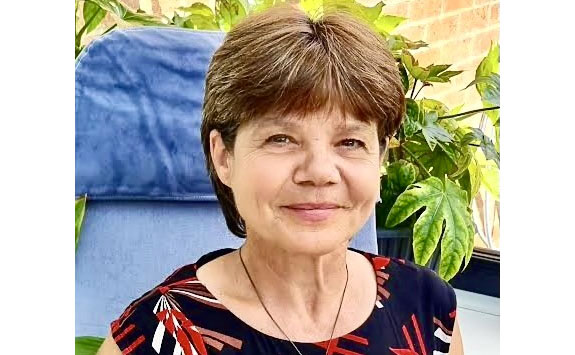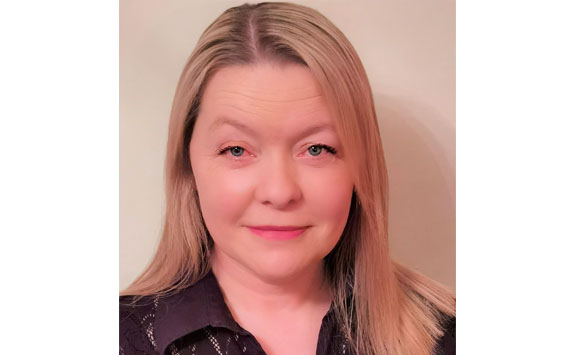Principal Fellowship of HEA
NEW: A vision for education and skills at Newcastle University: Education for Life 2030+
Principal Fellowship
Our Learning and Teaching Development Service offers support and guidance for all colleagues through our Advance -HE -accredited HEA Fellowship (PSF) CPD Scheme for Associate Fellow, Fellow, or Senior Fellow. For colleagues wishing to apply for Principal Fellow you will be offered an introductory one-day workshop and bespoke support to guide you through the application process. If you are a Newcastle colleague, the cost of application is covered.
If you can demonstrate a sustained record of effectiveness in strategic leadership of higher education practice with extensive impact on high-quality learning within or beyond the institution, or across a discipline or profession as defined in PSF 2023, get in contact with apt.lts@newcastle.ac.uk. We look forward to working with you to recognise the impact you are making across Higher Education.

Jarka Glassey, PFHEA
As a holder of both a biochemical engineering and an education first degree I was always passionate about both aspects of my own education and I was heavily involved with the then CASAP PGCert at Newcastle University. We were working with colleagues active in education to have their practice recognised at all categories of HEA Fellowship, and it didn’t feel right to ask them to go through the mill for SF recognition and not do it myself, as the then chair of the CASAP Board of Studies. During the first workshop with a PF mentor, he asked us to outline the main ideas we would put forward (and yes, I have used quite a number of those that I used for my NTF, but I would stress that the two are very different). I found the SF template rather constraining so when the mentor mentioned I should go straight for PF, considering my level of external leadership, I jumped at that. I was actually surprised to be awarded the PF (didn’t really believe the mentor, when he kept stressing it is not just for deans and PVCs), particularly as at that stage we did not have a PF at Newcastle yet. The subsequent engagement with both the NTF and PF community nationally and internationally definitely broadened my pedagogic activities and opened some really interesting avenues of collaboration and discussion. I would definitely strongly encourage anyone that fits the PSF criteria to go for it.

I would encourage anyone who has taken on responsibility for an area of educational development to have a look at the Senior and Principal Fellowship descriptors and see if there might be value in pursuing one of them.
Chris Phillips, PFHEA
Throughout my career as an academic I have always been committed to my teaching. I will never forget the opening remarks of the Chair of one of the first senior committee meetings I attended at Newcastle, which went along the lines of “We should never forget that student tuition fees form the major source of income to the University”. But of course, it’s the joy of working with students and seeing them flourish that has been my main motivation. Just as I wanted my subject knowledge to be formally recognised by becoming a Member of the British Computer Society, so I wanted my ability as an educator to be recognised by becoming first a Senior Fellow of the Higher Education Academy, and subsequently a Principal Fellow. I can’t say that I found writing the PFHEA application easy. I’m very grateful to the University for its support with this, but also to the two external colleagues I contacted to give me feedback on early drafts. It was initially soul-destroying to receive those drafts back ‘red-inked’ all over the place. Most of the comments were along the lines of ‘why?’ and ‘what was the result?’ I had been able to write about what I did, and believed that this was of a good standard. But writing a PFHEA application forced me to reflect on whether I was really engaging with students and making a positive difference to their learning. It required me to demonstrate impact from disseminating my practice, show that I had learnt from other educators about alternative teaching styles, and evidence that I was able to put my practice in context with the pedagogic literature. It also encouraged me not to be afraid to experiment further with my delivery – you can teach an old dog new tricks. I’m sure that being able to demonstrate recognition at PFHEA level will have had some impact on my being promoted to a Chair in Computer Science Education via the T&S route – yes, it does happen. I currently act as a Mentor for the Newcastle Educational Practice Scheme and did so for its predecessors. As someone who has gone through the SFHEA/PFHEA application process I am able to help others with their applications for HEA recognition at Associate Fellow and above. I always apologise for ‘red-lining’ draft submissions, but I hope that I do so in a constructive way, and I gain great pleasure in seeing these applications subsequently being successful.
Gillian Brown, PFHEA
I applied for Principal Fellowship (PF) in 2016 and it’s one of the best things I’ve ever done – particularly as I’m a member of Professional Services. Fellowship is not just about academic practice, it’s also about supporting learning, and often, this is behind the scenes. Applying for PF is also therapeutic. It forces you to look back on the career you've had and the impact you've made, and this can be evidenced in your application by aligning it to the framework. For me, it provided an opportunity to consolidate the educational technology development work I accomplished over several years, and the strategic impact this had, particularly across the veterinary education community in the UK and internationally. By managing multiple projects and steering resources to enhance student learning across institutions and disciplines, several of my projects/workshops significantly impacted and influenced policy within the sector. My expertise and integrated approach to academic practice were recognised by several institutions and professional bodies. This led to me being invited as a keynote speaker and project participant on topics ranging from Open Educational Resources and Creative Commons licences, through to formulating Fitness to Practice guidelines and policies for the veterinary profession.
I love my current role in NUIT as I’m still immersed in educational technology. I remain part of my discipline community by encouraging shared practice and professional networks - but I also enjoy the benefits I’ve received from being part of the wider PF community. Professional Services staff often think that Fellowship is not for them, but it really is. I feel it’s important, as (currently) the only PF in Professional Services, to share my experience and help others recognise the impact they've had themselves. No matter what your role is at the University, you ultimately assist, facilitate, catalyse, impact, influence, help, support, encourage, and mentor our staff and students. Professional Services underpin the structure for learning and teaching.

Anonymous, PFHEA
I decided to undertake PFHEA because I wanted some external validation on my achievements, and I wanted to have a bit of a think about what I had achieved and if it was worth anything to me. I think also it was a chance to reflect and try and understand what things I would have done better, which is probably most of it. Most importantly to me, is that I have a sizeable research profile for my discipline and have had a fair amount of grant success. I wanted to dispel the idea that you either teach or you research, my argument is you can and should do both. I’m not sure this is a popular view in the University though I have to say. I also did this to show leadership amongst my colleagues to encourage them to push on with it. We now have 5 SFHEAs in the School and one going for PFHEA, so I think this sort of worked.
